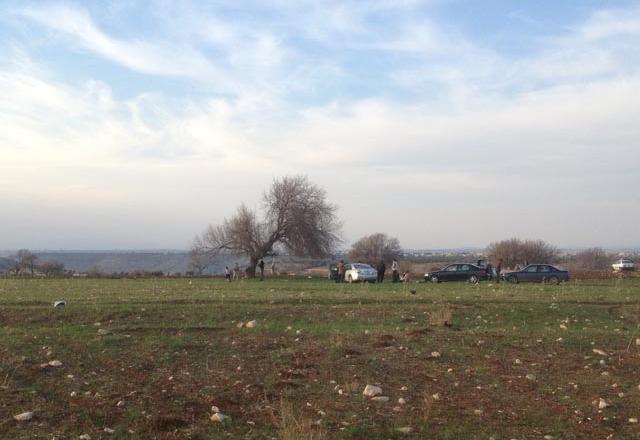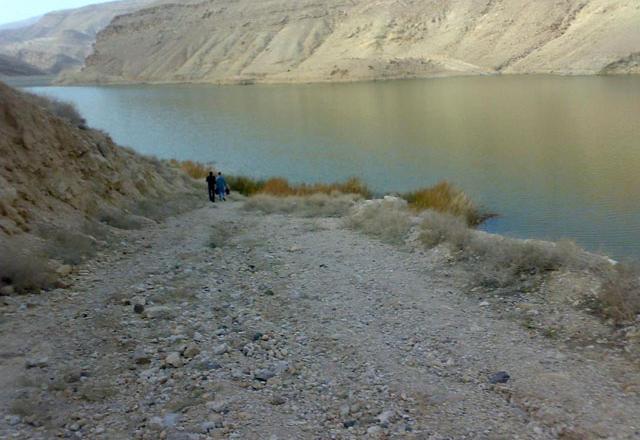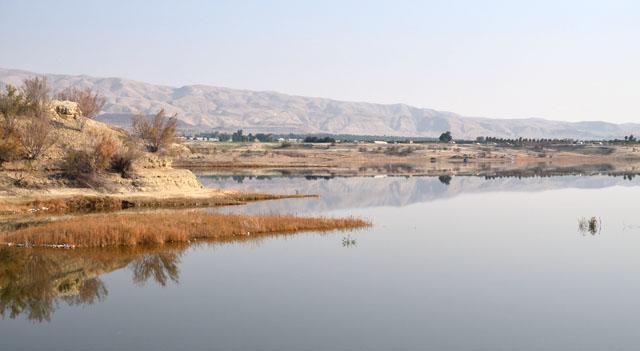You are here
Water Ministry readying contingency plan in anticipation of drought
By Hana Namrouqa - Feb 22,2014 - Last updated at Feb 22,2014

AMMAN — The Dead Sea water level dropped by 7 per cent during January compared to the same period last year, according to a senior government official, who attributed the accelerating decline to a “record lack of rain”.
The continuously shrinking Dead Sea dropped during last month by 33 per cent of its total decrease of one metre annually, compared to 26 per cent recorded in January last year, Minister of Water and Irrigation Hazem Nasser said in a statement e-mailed to The Jordan Times.
He attributed the “alarming” situation to the fact that the Kingdom has not seen rain since mid-December.
The Dead Sea, which is the lowest point on Earth, has been shrinking for decades, largely due to the diversion of water from the Jordan River for agricultural and industrial use as well as dropping amounts of rain over the past decade, according to environmentalists.
Nasser said that the accelerating drop in the Dead Sea level is an indication of the poor performance of the current wet season, warning that the lack of rain since December is “alarming” not only for Jordan but also for the region.
“The Kingdom is experiencing an unprecedented rain failure… this necessitates an emergency plan to tackle the impact of drought on water storage and supply during summer,” Nasser said.
 |
|
Quantities of water in Jordan dams during rain seasons 2007/2008-2013/2014 (in million cubic metres) |
Jordan and the region are witnessing a record lack of rain for the first time in many decades, according to Nasser, who underscored that the fluctuating rain has already taken its toll on ground and surface water resources.
“This is a dry year and a dry winter. We are studying our options to reduce water consumption during summer in accordance with every region’s circumstances, such as the Jordan Valley and its irrigated crops,” Nasser said in the statement.
The ministry has started drawing up an emergency plan to address the expected results of the lack of rain in the Kingdom, Nasser said.
The lack of rain and its fluctuation is negatively affecting the country’s ground and surface water resources, thus accelerating desertification, impeding agricultural planning and reducing agricultural productivity, he added.
“The lack of rain is also reducing water amounts in the aquifers and increasing salinity levels,” Nasser said.
In addition, water storage at Lake Tiberias has also failed to increase during this winter, according to Nasser, who said that the lake received 13 million cubic metres (mcm) since the start of the wet season in late 2012 and until February 22, 2013, while it has only received 2.7mcm since the start of the current winter until Saturday, according to the minister.
“Performance of the current wet season sets the alarm for how the coming winters will be like,” Nasser noted.
The dams currently have 140mcm, or 43 per cent of their total capacity of 325mcm, which is 14 per cent less than the amount stored at dams during this time last year of 186mcm, according to official figures.
The dams have not received any water since December’s snowstorm; moreover, so much water is being pumped from the dams to “orweh tishrineyeh” crops and trees because of the lack of rain and the high temperatures, according to the ministry.
Orweh tishrineyeh is a local agricultural term that refers to winter crops planted at the end of each year, when farmers grow vegetables in the Jordan Valley. Different kinds of vegetables are cultivated during this period, including cucumber, tomato, eggplant and zucchini.
Related Articles
The Kingdom is facing a drought threat which will have a negative impact on water storage and crops if it persists, officials warned on Tuesday.
More than 16 million cubic metres (mcm) entered the Kingdom’s dams over the weekend, after unstable weather conditions brought torrential rain and thunderstorms to different parts of the country, according to the Ministry of Water and Irrigation.
More than 4 million cubic metres (mcm) of rainwater entered the Kingdom’s dams between Sunday and Monday during the wet season’s first depression, according to the Ministry of Water and Irrigation.

















